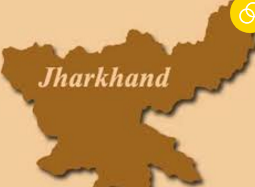Local Resident of Jharkhand Bill
The Jharkhand Assembly has ratified the ‘Local Resident of Jharkhand Bill’ following a reconsideration, despite earlier opposition and constitutional concerns raised by Governor C P Radhakrishnan. The bill, brought forth by Chief Minister Hemant Soren, establishes 1932 as the cut-off year for ‘proof of land records’ to define a local resident. Individuals whose names or ancestors’ names appear in the 1932 survey or earlier will be termed locals. The bill, now headed to President Droupadi Murmu for approval, aims to place it in the Ninth Schedule of the Constitution to avoid judicial review.
Key Provisions of the Bill
Under the bill, landless individuals will be identified as locals by Gram Sabhas based on cultural practices, local customs, and traditions. The 1932 survey is crucial as it addresses the impact of pre- and post-1932 migration on the living conditions, customs, and social development of the tribal community and ‘moolwasis.’
Legal Challenges and Ninth Schedule Placement
The Babulal Marandi government had introduced a similar policy in 2002, which faced legal challenges and was struck down by the courts. The current government, however, believes that placing the bill in the Ninth Schedule will help bypass legal hurdles. Governor Radhakrishnan had earlier expressed concerns about potential constitutional violations, prompting the reconsideration.
Additional Legislation Ratified
The Jharkhand Assembly also ratified the ‘Jharkhand Reservation of Vacancies in Posts and Services (Amendment) Bill, 2022,’ raising reservation from 60% to 77%. This bill includes increased quotas for SC, OBC, ST, and EWS categories, with significant changes in reservation percentages. The move aims to address the socio-economic dynamics of the state’s population, where OBCs and STs constitute over 65%.
Month: Current Affairs - December, 2023
Category: India Nation & States Current Affairs • Legal & Constitution Current Affairs




